Home \ Low Carbon School Pilot Project \ Wandering the Earth or guarding it in the face of the climate crisis?
wrote by YangJiqing
This year's summer has been exceptionally brutal, with The Yangtze River basin has been in a constant state of heat and drought for over 2 months, the residents of Sichuan and Chongqing experienced water shortages, power cuts, heat-related illnesses, and wildfires raged in the mountains of Chongqing for 1 week.
At the same time, the north-east was flooded and tornadoes were on the horizon in the south.
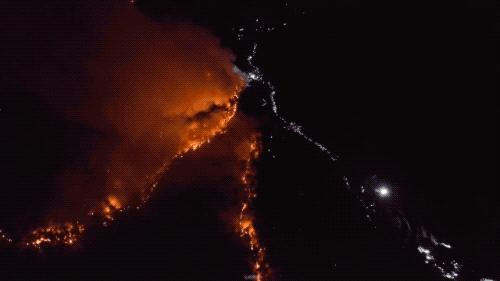
Chongqing Mountain Fire (from the internet)
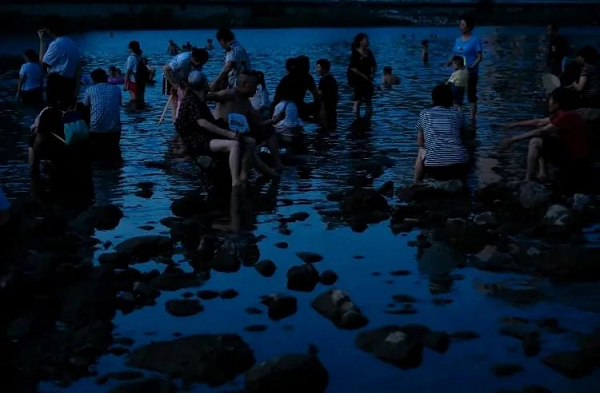
Residents go to the river at night to beat the heat after power restrictions in Dazhou, Sichuan (from the internet)
Will we experience such extreme heat every year from now on?
Is the impact of a 1.1°C global warming already so dramatic?
And what are the causes of the unusual climate?
Should we wander the earth, or should we guard it?

Wandering Earth (from the internet)
In 2022, the strong subtropical high pressure caused the areas under its envelope to be sunny and hot, with sinking currents unable to form rainfall. High temperatures and drought, which lasted for more than 2 months, especially in the Yangtze River basin, with Shanghai, Wuhan, Chongqing and Chengdu all exceeding 40°C.
The persistent drought affected the power generation and caused power shortages, as well as hill fires and heat-related illnesses, making a meteorological disaster a complex social disaster.
This abnormally high global temperature is related to La Niña, but deeper still, it has been exacerbated by global warming.
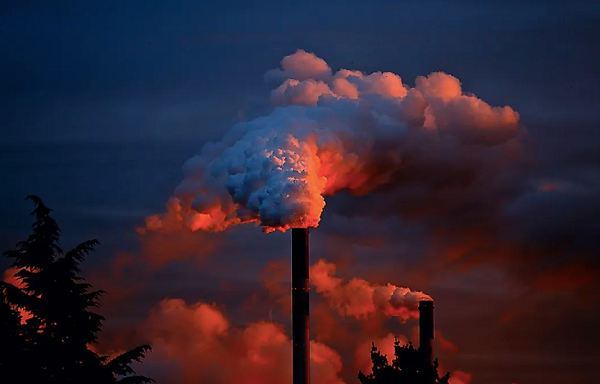
CO2 emissions are thought to be a direct cause of global warming (from the internet)
Some time ago, the topic "this year is the hottest summer since 1961" was on the top of the search.
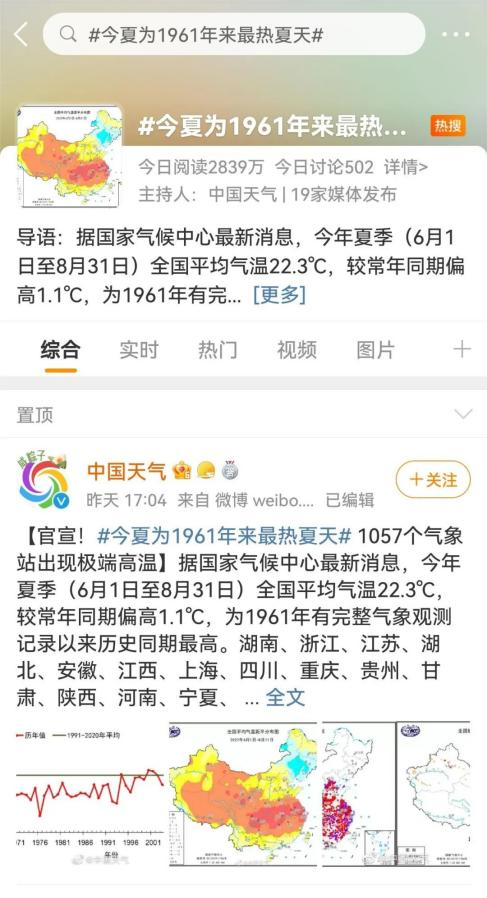
"Heat" has rightly become the "fear" that dominates the world this summer.
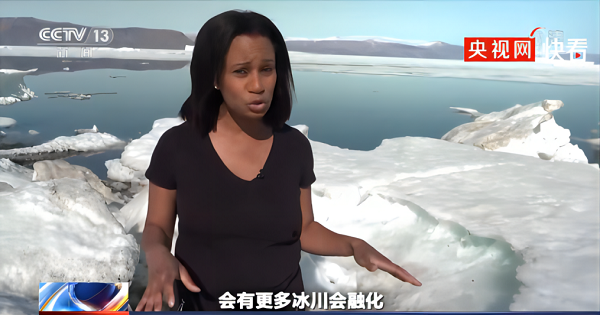
Arctic researchers stationed in the Arctic wear short sleeves as temperatures reach the high thirties and glaciers collapse extensively (from the internet)
In 1972, the United Nations Conference on the Human Environment adopted the Declaration on the Human Environment, and in 1983, China formally established "protecting the environment" as a basic national policy.
But global warming is still occurring at a rate not seen since the last 2000 years. Floods, droughts and typhoons are becoming more frequent.
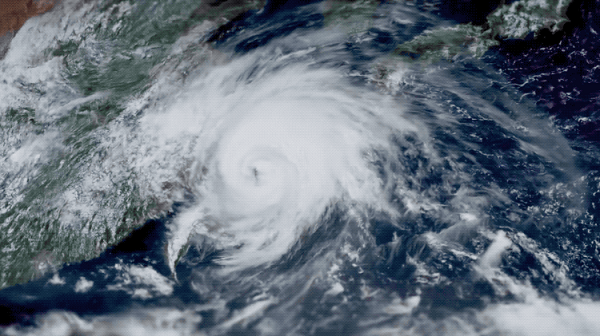
Typhoon
Combating global warming is a long process, a huge social issue and national strategy, and a game between different national interests and the common destiny of mankind.
But what can we, as individuals, actually do?
The EU-Humana Yunnan Low Carbon School Pilot Project uses education on ecological civilization as a tool to practice low-carbon environmental protection among the general youth population, and through the role of demonstration, drive individuals, schools, families and communities around them to start protecting the environment, reducing waste production, and participating in the process of protecting the environment and combating global warming through details and drops in life, study and work.
For example, we will carry out low-carbon education and publicity activities in schools, practice low-carbon concepts in management, separate waste, reduce waste, reduce unnecessary waste, use old things, build low-carbon education corners, use energy-saving equipment, etc., so as to ultimately reduce carbon emissions and retain a green, livable and beautiful living environment.
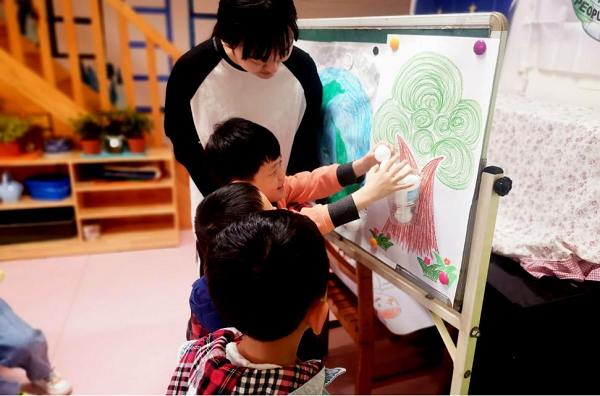
Explanation of carbon dioxide absorption by green plants (photos of project activities)
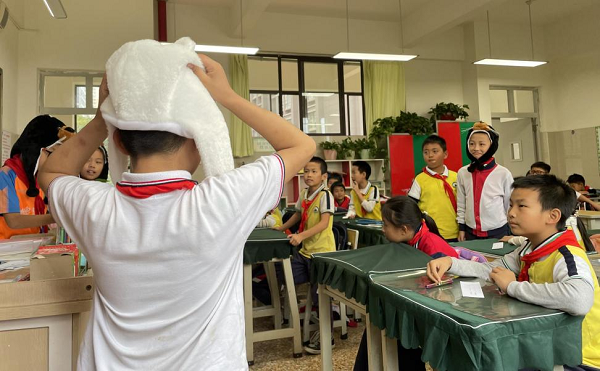
Demonstration lesson role play (project activity photos)
Since the implementation of the project in the second half of 2020, the project has been mobilizing "low-carbon schools", combining low-carbon awareness and educational activities, and has now gained positive impact. The first batch of low-carbon pioneer schools have been selected to take the lead in building low-carbon schools.
The next steps in the project are to further expand and strengthen low-carbon education activities in different types of schools across Yunnan Province in terms of breadth and depth, to strengthen ecological civilization education and to create green and low-carbon campuses.
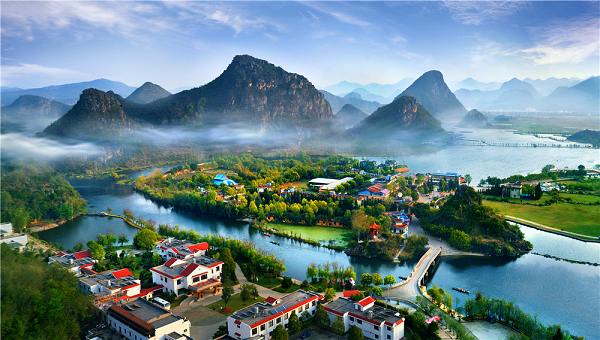
Building an ecological and livable environment together (from the internet)
We cannot live without nature and nature needs our protection.
The plan to wander the Earth is "futile" and there is no time to lose!
Project introduction:
Yunnan Low-carbon Schools Pilot Project is funded by the European Union and implemented by the People to People Foundation (Spanish member of HPP) in cooperation with FAIHPP (Switzerland) Yunnan Representative Office, Yunnan Academy for Science and Technical Information, Southwest Forestry University, Green Kunming (Kunming Environmental Popular Science Association) and Kunming Good Deed Public Welfare Community Development Service Center with a project cycle from January 1, 2020 to December 31, 2023. The project begins by increasing partners’ awareness and advocacy on climate change mitigation and environmental protection, by raising climate change awareness among 600 schools, 70,000 students and teachers, determine the emission benchmark through basic calculation, and then implement emission reduction work in 50 Carbon Compliant Pioneer Schools. Use science, technology, innovation and other means to respond to “climate action” to accelerate environmental sustainability and promote the transition from green campuses to low-carbon and carbon-neutral campuses.

The project is funded by European Union.

Any views or opinions presented are solely those of the author, and do not necessarily represent those of the donor.